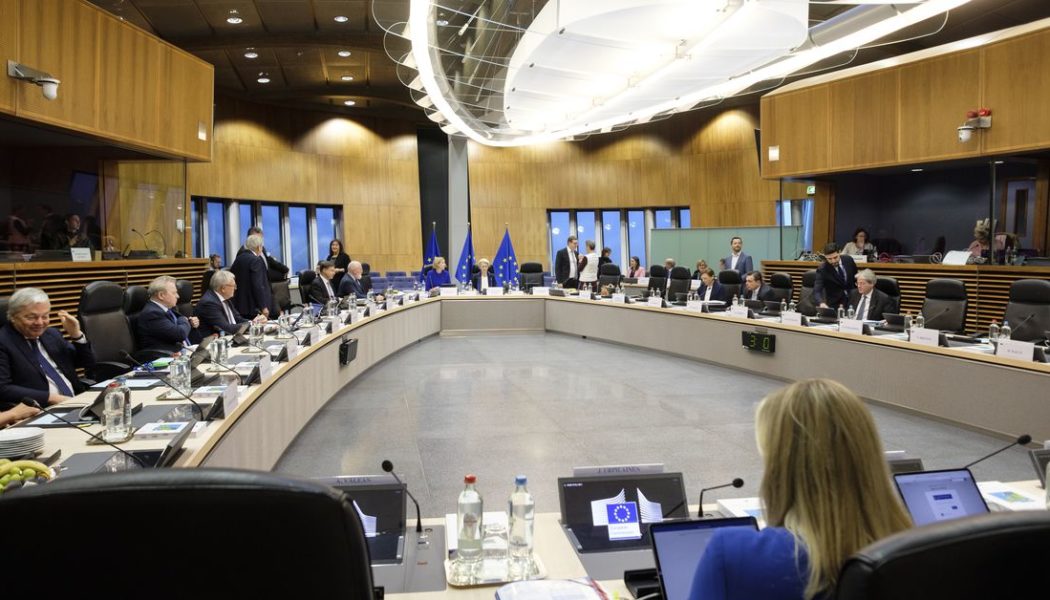/cdn.vox-cdn.com/uploads/chorus_asset/file/24247452/1245223886.jpg)
The European Union has taken a major step toward legitimizing attempts to pull carbon dioxide out of the air. Yesterday, the European Commission adopted a proposal for new rules on how to certify carbon removal, a still controversial strategy for limiting climate change.
The worry is that, without the proposed rules, ineffective carbon removal projects might derail climate goals and give polluters a sham to hide behind while presenting themselves as green. So, to weed out such projects, the European Commission wants to establish a framework for certifying “high-quality” carbon removals.
“Higher transparency will ensure trust from stakeholders and industry, and prevent greenwashing,” the Commission said in its announcement.
“The EU is betting big on unproven removals”
But their proposal has set off alarm bells for dozens of environmental groups, who say the EU’s embrace of carbon removal sets the stage for even more greenwashing. Old carbon offset strategies that relied on forests, many of which have failed to reduce greenhouse gas emissions, could be included in the new carbon removal scheme. New technologies designed to capture and store CO2 from the air have yet to prove themselves at scale, and there’s a fear that the tech will deter efforts to prevent pollution in the first place.
“The EU is betting big on unproven removals … Every ton of future promised carbon removals represents a delay in emissions cuts today, bringing us deeper into climate chaos,” Lucy Cadena, coordinator of Real Zero Europe, an environmental campaign opposing the EU’s carbon removal plans, said in a statement. Over 200 organizations released a public statement with Real Zero Europe this week condemning the European Commission’s carbon removal plans.
Under the Commission’s proposal, carbon removal projects would apply for a “certificate of compliance” from a third party. The proposal lays out criteria for how to independently verify that a project is actually taking CO2 out of the atmosphere and storing it somewhere safe where it can no longer heat up the planet. Criteria for certification include ensuring that the captured CO2 can be accurately measured, for example, and stored for the long term.
The framework still needs to be fully fleshed out. As it is, “it’s very vague, it’s very non-committal, we are lacking a lot of very crucial wording,” Wijnand Stoefs, policy officer at the NGO Carbon Market Watch, tells the Financial Times.
One of the biggest concerns with the proposed framework is whether it will verify projects that don’t permanently store carbon dioxide. CO2 can persist in the atmosphere for hundreds of years, causing climate change. To counteract that, projects need to be able to keep captured CO2 out of the atmosphere for just as long. So far, humans haven’t been very good at doing that.
For instance, many companies have turned to carbon offset projects that promise to harness the ability of forests to take in CO2 and hold that in trees and soil. But those forestry projects are vulnerable to forest fires and logging. And when a company says it’s going to plant more trees to make up for its pollution, it doesn’t necessarily guarantee that the young tree will survive for hundreds more years. Investigation after investigation has found that these kinds of projects don’t live up to their carbon-storing promises.
Moreover, the Commission’s proposal also includes efforts to store CO2 in everyday man-made materials. “Long-lasting products and materials, such as wood-based construction products, can also keep carbon bound over several decades or longer,” the European Commission says in its press release. That seems to set a pretty low bar for “long-term” CO2 storage.
To become law, the proposed framework still needs to be adopted by both the European Parliament and Council. As regulation lags, big corporations are already trying to establish a foothold in the emerging carbon removal market. Oil giant Occidental already has plans to sell carbon removal credits from its upcoming projects in Texas. Big Tech wants in, too. Alphabet, Meta, Stripe, and Shopify launched an initiative in April to vet carbon removal projects for companies that want to purchase their services.









